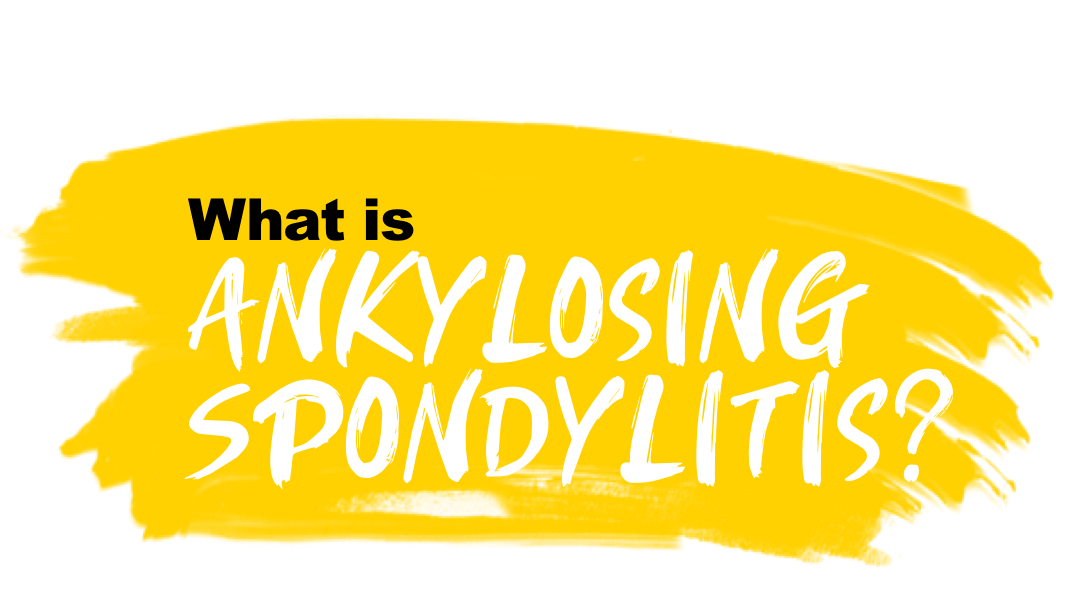
What is Ankylosing Spondylitis
Ankylosing spondylitis (AS) is a form of inflammatory arthritis involving the spine.1 It causes ongoing inflammation of soft tissues around the spinal bones (vertebrae).1 Over time, this can cause your pelvic bones and sometimes some of your vertebrae to fuse.1,2 This makes your spine less flexible and can result in a hunched posture.1,2 If your ribs are affected, it can be difficult to breathe deeply.2
The condition can develop at any age but is most likely to occur between the ages of 13 and 35 years. It is uncommon after the age of 40.3 Although there is no cure, AS can be managed with medication and lifestyle modification.3
Symptoms and signs of Ankylosing Spondylitis
Common signs and symptoms of ankylosing spondylitis include pain and stiffness in the lower back, buttocks, and hips, especially in the morning and after periods of inactivity.1,2 This might occur on one side only and can interrupt sleep – especially during the second half of the night. The stiffness tends to improve once people get moving.1 Other parts of the body can also be affected, causing pain and stiffness in the shoulders, hips, ribs, heels, hands and feet, and knees. Sometimes tendons can also be inflamed, especially around the ankle.1,3
Other signs and symptoms of AS may include:2,3
Neck pain
Uveitis
(inflammation in the eye),which causes pain and redness.
Fatigue
Over time, symptoms might worsen, improve, or stop at irregular intervals.2
What Causes Ankylosing Spondylitis?
Ankylosing spondylitis has no known specific cause, though genetic factors seem to be involved.2 It affects men almost three times more often than women, although the reasons for this are unknown.1–3 Smoking tends to make AS worse.1
Genetic predisposition
Ankylosing spondylitis can be hereditary.1 There is a strong tendency for AS to run in families, especially if you have a close relative with the condition.1 In many cases this risk is related to a single gene called HLA-B27, although the gene is also present in healthy people who don’t have AS.1,3 There is also a genetic link between AS and Crohn’s disease or inflammation of the bowel.1,3
Diagnosing Ankylosing Spondylitis
The diagnosis of AS is made from an assessment of symptoms, physical examination, blood tests and X-rays or MRI scans.1
- In a physical exam, the rheumatologist will assess the flexibility and range of motion in your spine.4 They may also ask you to take a deep breath to check any difficulty in expanding your chest.4 And they may try to reproduce your pain by pressing on parts of your pelvis or moving your legs into a particular position.4
- There are no specific blood tests to identify ankylosing spondylitis.4 Some tests can check for markers of inflammation, but inflammation can be caused by many different health problems.4 You can also be tested for the HLA-B27 gene.4 However, many people have that gene but don’t have ankylosing spondylitis and others have the disease without having the gene.4
- Imaging tests such as X-rays or an MRI scan allow doctors to check for visible changes in joints, bones, and soft tissues.4